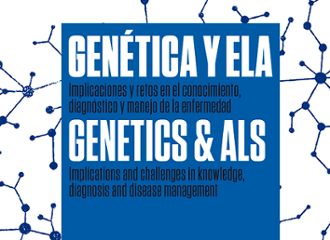Research projects
Start of main content
Unveiling a novel intercellular dialogue: mitochondria transfer to B cells during the immune response
22st national competition for scientific and technical research
Intercellular Dialogue and Interactome: Pathological Implications
Senior Researcher : Nuria Martínez Martín
Research Centre or Institution : Centro de Biología Molecular "Severo Ochoa". CSIC-Universidad Autónoma de Madrid
Abstract
Upon pathogen infection, the immune system activates both innate and adaptive responses. The innate response acts rapidly but nonspecifically, while the adaptive response provides specificity and immunological memory. The activation of adaptive immunity occurs in secondary lymphoid organs through interactions between B cells and CD4 T cells, leading to the formation of Germinal Centers (GC). Within the GC, B cells proliferate and differentiate into memory B cells (MBC) and antibody-producing plasma cells (PC). Dysregulation of GC formation can lead to immune disorders, emphasizing the need to understand the molecular mechanisms involved in GC initiation, maintenance, and termination.
Immunometabolism plays a crucial role in GC dynamics. Mitochondria, as key organelles, supply energy and biosynthetic precursors essential for proliferative B cells. Beyond their bioenergetic role, mitochondria act as signaling platforms that influence B cell function and differentiation. The GC microenvironment includes diverse immune cells that remodel their metabolism upon antigen stimulation, establishing the GC as a "metabolic hotspot." However, the mechanisms by which metabolic resources are shared among GC cells remain unclear.
Preliminary findings suggest a novel form of communication between B cells and CD4 T cells within the GC: metabolic communication. This metabolic dialogue may involve intercellular mitochondrial transfer, influencing the overall metabolic landscape of the GC and driving adaptive immunity. We propose that this mitochondrial transfer is a bystander interaction critical for GC function, impacting B cell metabolism, differentiation, and the adaptive immune response to pathogens.
The overarching goal of this study is to decipher the molecular basis of mitochondrial transfer into activated B cells and to determine its effects on B cell function. By identifying the molecular components involved and understanding their impact, we aim to uncover novel insights into GC biology.
Ultimately, this research will explore the therapeutic potential of targeting mitochondrial transfer mechanisms in immune-related diseases. Findings from this study could lay the groundwork for innovative strategies to modulate immune responses, offering new avenues for treating immune system disorders.
-
 Activities related
Activities related
-
 Projects related
Projects related
-
 News related
News related
-
 Publications related
Publications related
 Activities related
Activities related
-
26
Jun
2024
Conferencias La aventura de la ciencia Madrid, Miércoles 26 de junio de 2024, 19:00 horas
-
13
Feb
2025
17th edition. Cycle of conferences and debates in science Digital Twins: Technological Advances and Application Opportunities Madrid, Thursday, 13 February 2025, 17:30 hours
-
18
Feb
2025
Session New Therapies for the Inflammation Treatment Madrid, Feb 18th, 2025, Tuesday. 4PM
 Projects related
Projects related
- Development and Application of saRNAs for the Treatment of Rare Monogenic Diseases 2024 Senior Researcher : María Luisa Cayuela Fuentes
- CHANNELOSOME RESCUING PEPTIDES IN THE TREATMENT OF ARRHYTHMIAS IN INHERITABLE HEART DISEASES 2024 Senior Researcher : José Jalife Research Centre or Institution : Centro Nacional de Investigaciones Cardiovasculares (CNIC). Madrid
- Mechanisms for sustaining mitochondrial genome integrity and function during hematopoiesis. 2024 Senior Researcher : Ana Victoria Lechuga Vieco Research Centre or Institution : Fundació Clínic per a la Recerca Biomèdica. Hospital Clínic. Barcelona
 News related
News related
 Publications related
Publications related


End of main content



